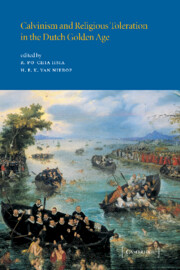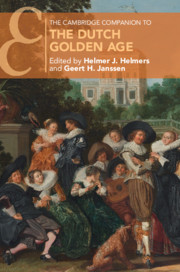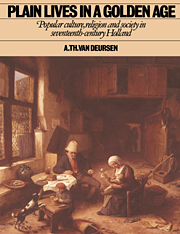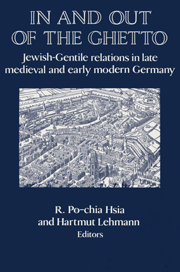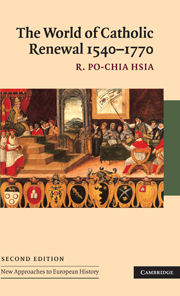Calvinism and Religious Toleration in the Dutch Golden Age
Dutch society has enjoyed a reputation, or notoriety, for permissiveness from the sixteenth century to present times. The Dutch Republic in the Golden Age was the only society that tolerated religious dissenters of all persuasions in early modern Europe, despite being committed to a strictly Calvinist public Church. Professors R. Po-chia Hsia and Henk van Nierop have brought together a group of leading historians from the US, the UK and the Netherlands to probe the history and myth of this Dutch tradition of religious tolerance. This 2002 collection of outstanding essays reconsiders and revises contemporary views of Dutch tolerance. Taken as a whole, the volume's innovative scholarship offers unexpected insights into this important topic in religious and cultural history.
- International scholarship
- Central topic of Dutch and religious history
- Diverse aspects of religious toleration covered
Reviews & endorsements
"Together these essays present a very valuable discussion of the practice of religious toleration set in the social and religious context of the Dutch Republic and confronted with the often very divergent principles of tolerance and intolerance." Renaissance Quarterly
"Dutch society was an interesting amalgam of intense religious passion combined with a willingness to endure other faiths, and these essays provide useful perspectives on a fasinating topic. Recommended for all academic libraries." Catholic Library World
"These essays provide useful perspectives on a fascinating topic. Recommended for all academic libraries." Choice
"The strength of this collection is that it provides much more than a series of detailed case studies. The synthesis provided by the earlier essays in the volume provides the broad context against which the experiences of different religious communities can be understood. It makes an important contribution to the literature on religious toleration during the early modern period." Sixteenth Century Journal Andrew Spicer, Oxford Brookes University
Product details
January 2005Adobe eBook Reader
9780511029042
0 pages
0kg
This ISBN is for an eBook version which is distributed on our behalf by a third party.
Table of Contents
- 1. Introduction R. Po-Chia Hsia
- 2. 'Dutch' religious tolerance: celebration and revision Benjamin J. Kaplan
- 3. Religious tolerance in the United Provinces: from 'case' to 'model' Willem Frijhoff
- 4. The bond of Christian piety: the individual practice of tolerance in Golden Age Holland Judith Pollmann
- 5. Religious policies in the seventeenth-century Dutch Republic Joke Spaans
- 6. Paying off the sheriff: strategies of Catholic toleration in Golden Age Holland Christine Kooi
- 7. Sewing the bailiff in a blanket: Catholics and the law in Holland Henk van Nierop
- 8. Anabaptism and tolerance: possibilities and limitations Samme Zijlstra
- 9. Jews and religious toleration in the Dutch Republic Peter van Rooden
- 10. Religious toleration and radical philosophy in the later Dutch Golden Age Jonathan Israel
- 11. The politics of intolerance: citizenship and religion in the Dutch Republic (17th–18th centuries) Maarten Prak.

